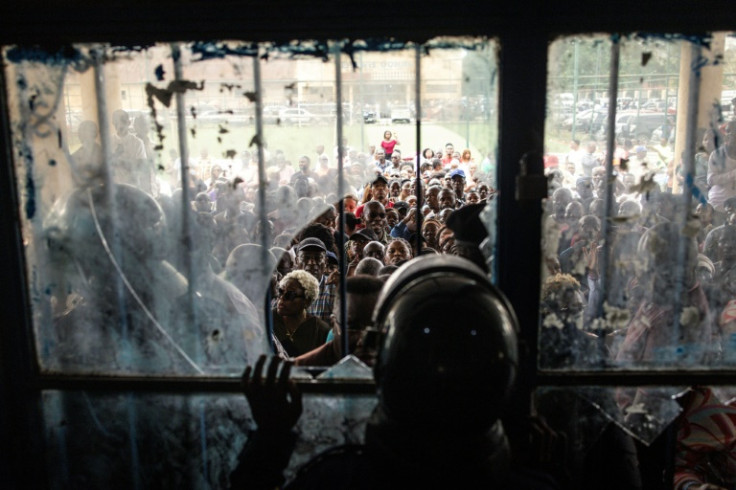
Western embassies in Democratic Republic of Congo's capital Kinshasa urged restraint on Saturday, after several leading opposition members called this week's election a "sham" and called for protests.
The poor but mineral-rich central African nation held four concurrent polls on Wednesday to elect the president, lawmakers for national and provincial assemblies, as well as local councillors.
President Felix Tshisekedi, 60, is running for re-election against 18 opposition candidates, some of whom denounced the election as chaotic and full of irregularities.
Massive delays and bureaucratic chaos marred the vote on Wednesday, with election authorities struggling to transport voting materials to polling stations on time. Some stations were unable to open at all.
The sheer scale of the DRC -- which is roughly the size of continental western Europe -- and its dire infrastructure means that organising elections poses a stark logistical challenge.
The country's electoral commission, Ceni, extended the vote until Thursday for stations that had been unable to open on polling day.
But ballots were still being cast on Saturday in remote areas, according to some officials, in a sign of continuing difficulties.
In a joint statement, 12 European embassies in the Kinshasa, and the Canadian embassy, have called for all actors to "exercise restraint". The US embassy issued a similar call the day before.
Around 44 million Congolese in the nation of 100 million were registered to vote, and more than 100,000 candidates were running for various positions.
Ceni on Friday evening released presidential-election results from the Congolese diaspora, which represents a miniscule proportion of the electorate, indicating a provisional lead for Tshisekedi.
Results from the DRC's 26 provinces are expected to start being released next.
Ceni stated that Thursday would mark the final day of voting, but Congolese citizens were still casting ballots the following day, and into the next.
In conflict-torn eastern DRC on Saturday, for example, voting materials were still arriving in the village of Mabuo in North Kivu province's Lubero territory.
Agents are then due to transport the material on foot to other places in the area, local official Macaire Kambau Sivikunula told AFP.
He added that after receiving a "special dispensation" from Ceni, voting would take place on Sunday.
Many locals interpreted the failure to hold the vote on Wednesday as a "conspiracy," Kambau explained, adding that this "triggered great tension" and that he and Ceni agents had received death threats.
Tshisekedi is considered the frontrunner in the first-past-the-post presidential election, especially given that the opposition is divided.
The main opposition candidates are gynaecologist Denis Mukwege, 68, the 2018 Nobel Peace Prize laureate; 58-year-old business magnate and former provincial governor Moise Katumbi; and 67-year-old former oil executive Martin Fayulu.
They have all criticised the election, and warned against the potential for electoral fraud.
In a letter published on Saturday, five opposition candidates -- including Fayulu and Mukwege -- announced that they intended to organise a demonstration on December 27.
"We will protest against the irregularities observed during the voting operations," they wrote, describing the election as a "sham".
The African Union, which conducted an observation mission, said the poll had taken place in an atmosphere of calm but noted major logistical challenges.
US NGO The Carter Center, which also deployed observers, noted "serious irregularities" at 21 out of 109 polling stations it visited.
On Saturday, a team of Congolese civil-society observers named Regard Citoyen reported that in 21 percent of the polling stations it observed, would-be voters were turned away illegally.
But in 13 percent of polling stations, people either without voting cards or not listed on the voter rolls were allowed to cast ballots, it said.
The Congolese government and the electoral commission Ceni have both rejected accusations that the vote was chaotic.
Government spokesman Patrick Muyaya stated on social media that the challenge of holding the elections had been met, despite the complexities of a process involving millions of voters and over 100,000 candidates.
"We are now calmly awaiting the results," he added.
The DRC is one of the poorest countries in the world, despite its huge reserves of critical minerals such as copper, cobalt and gold.

.png?w=600)





